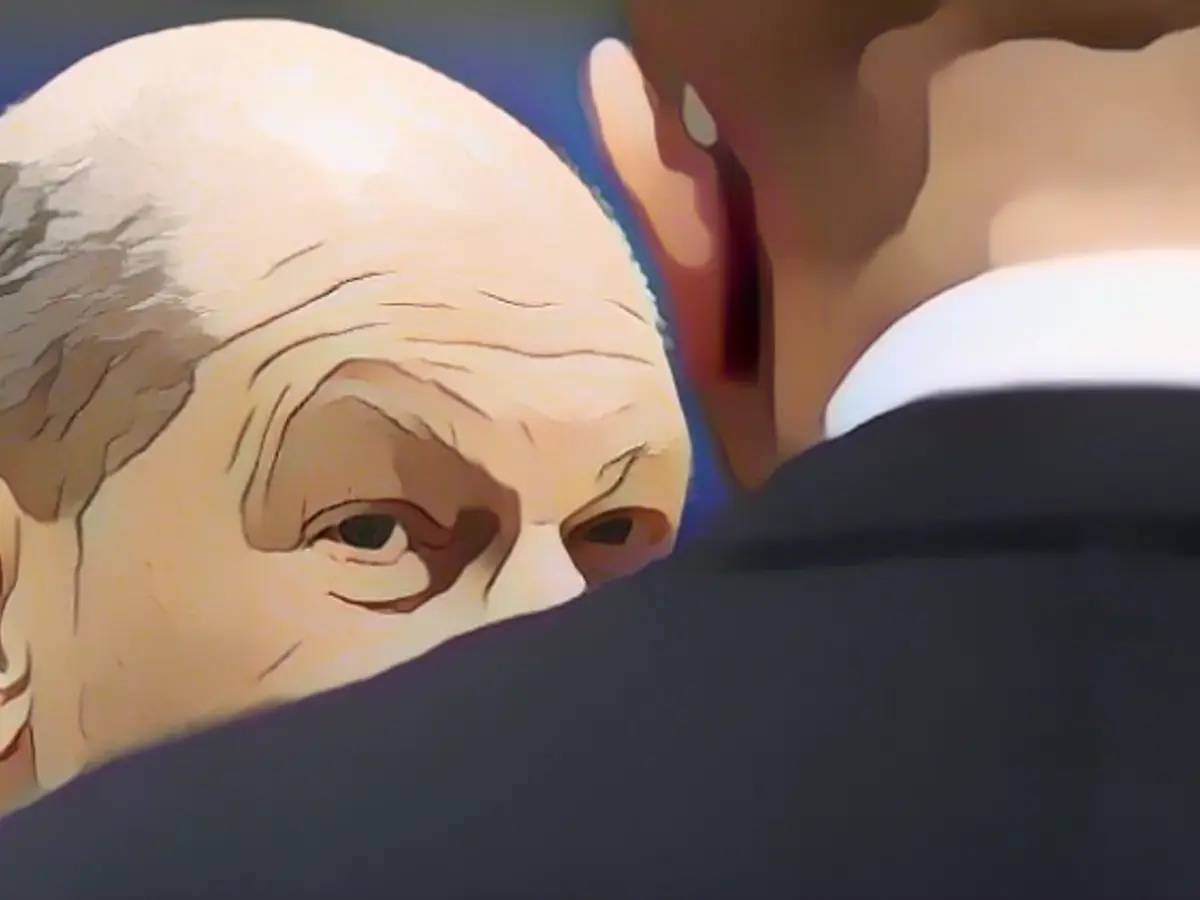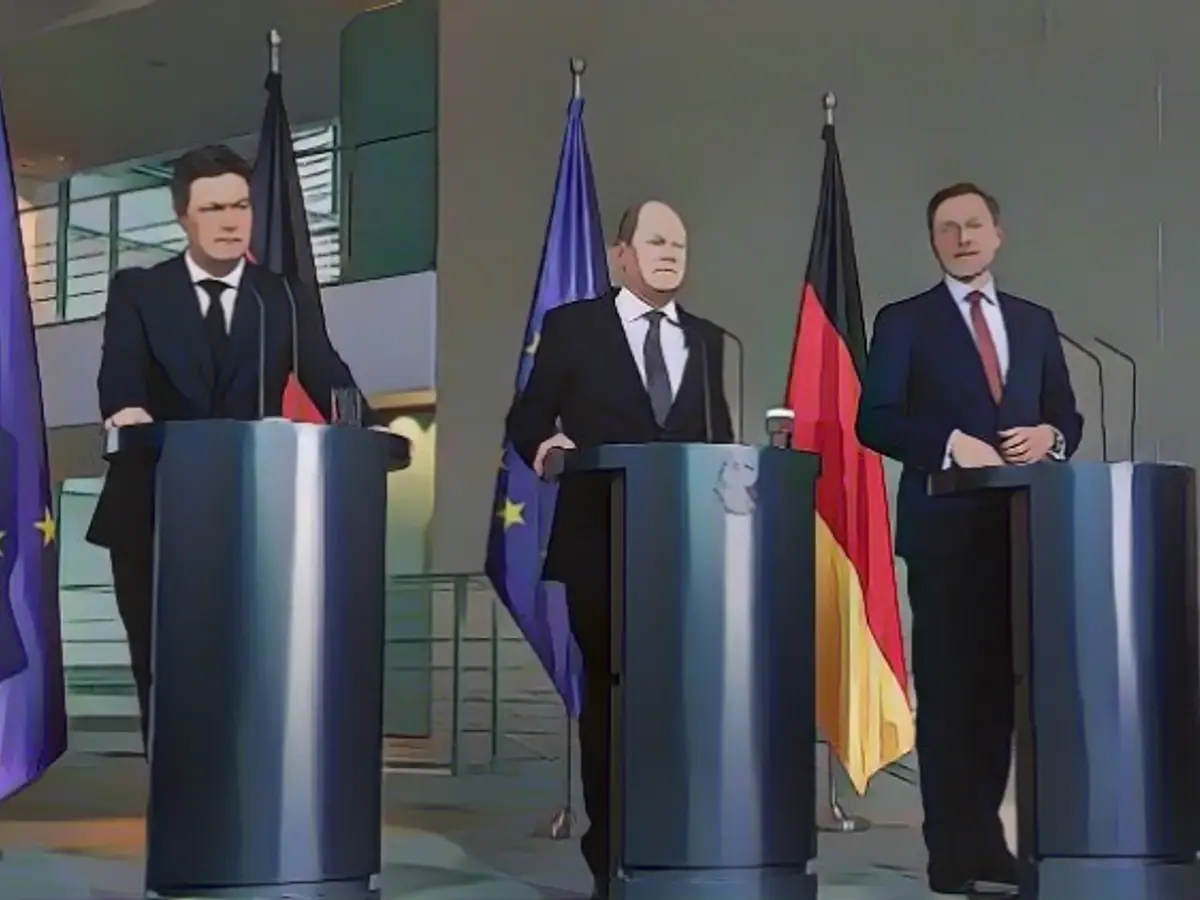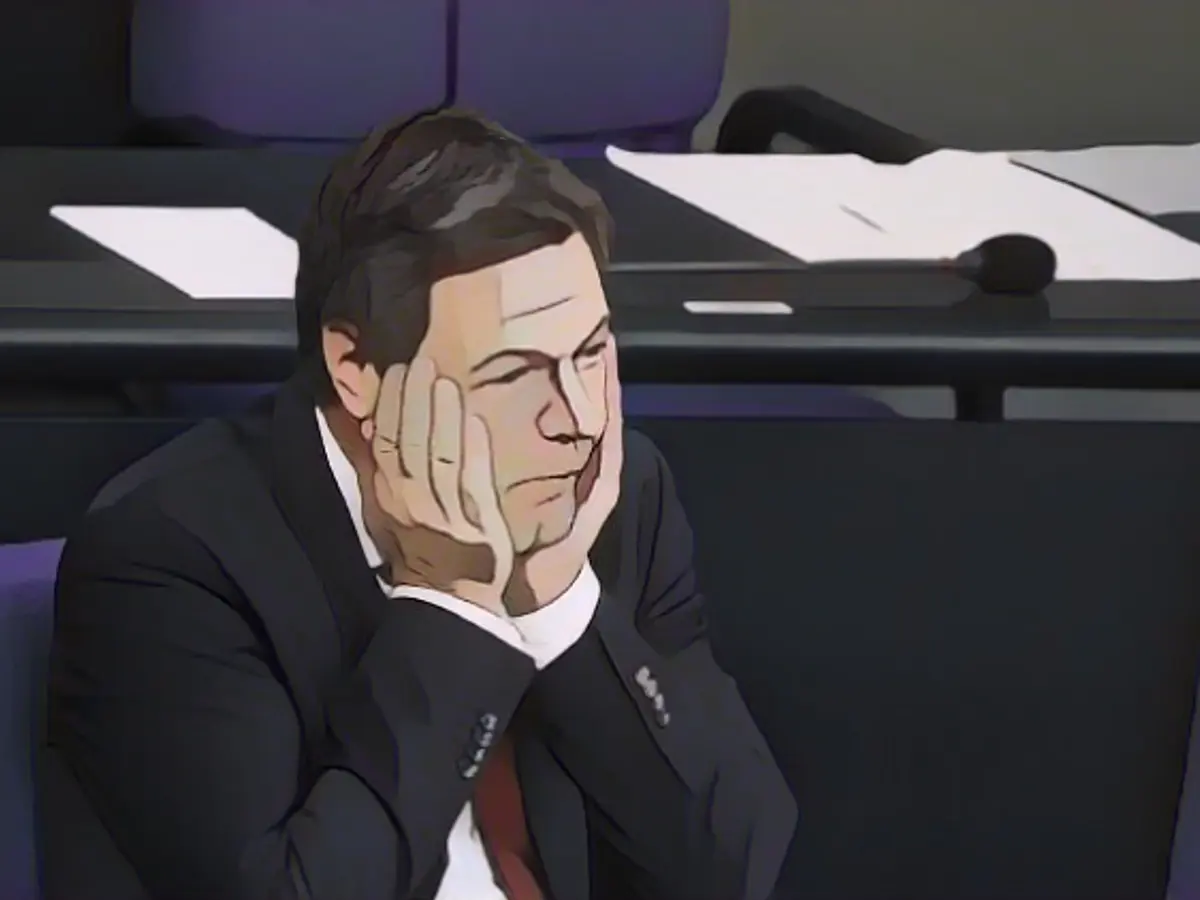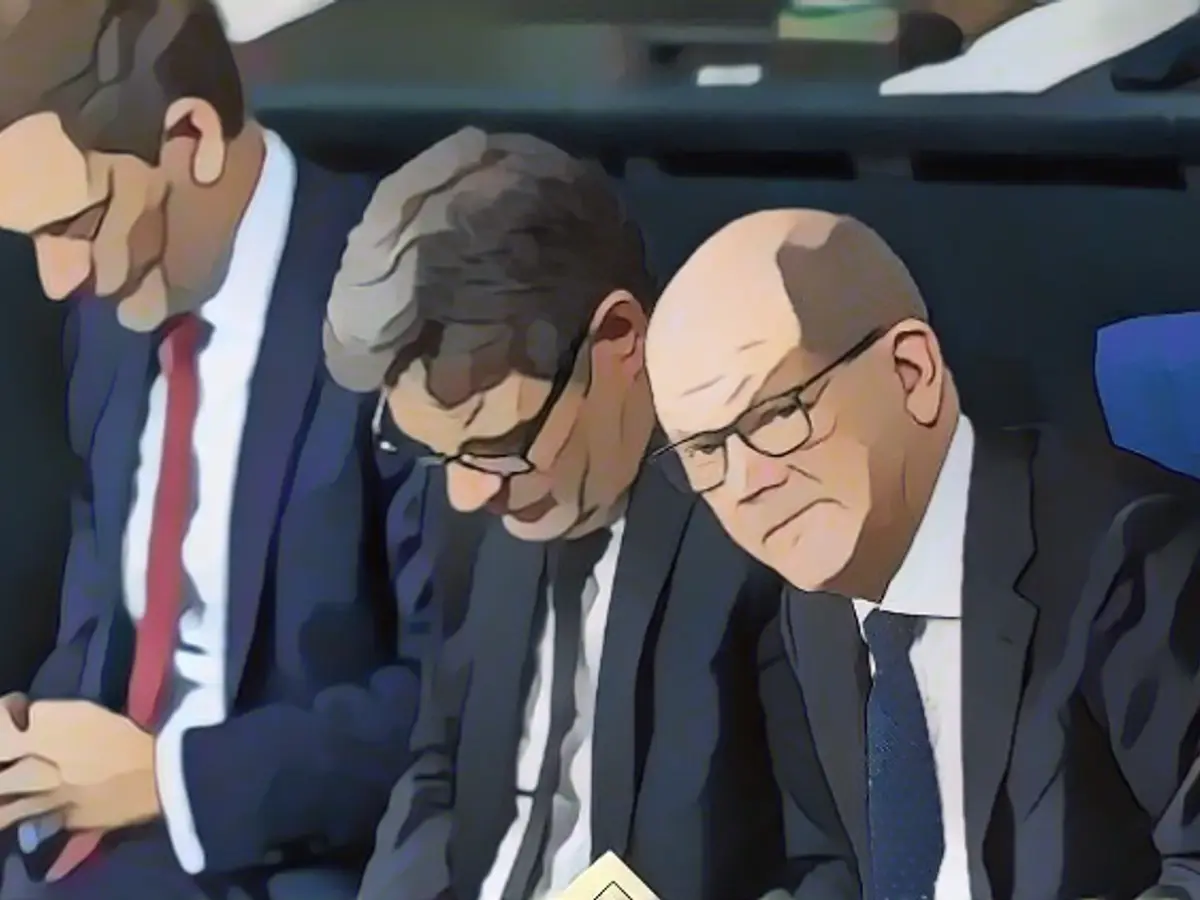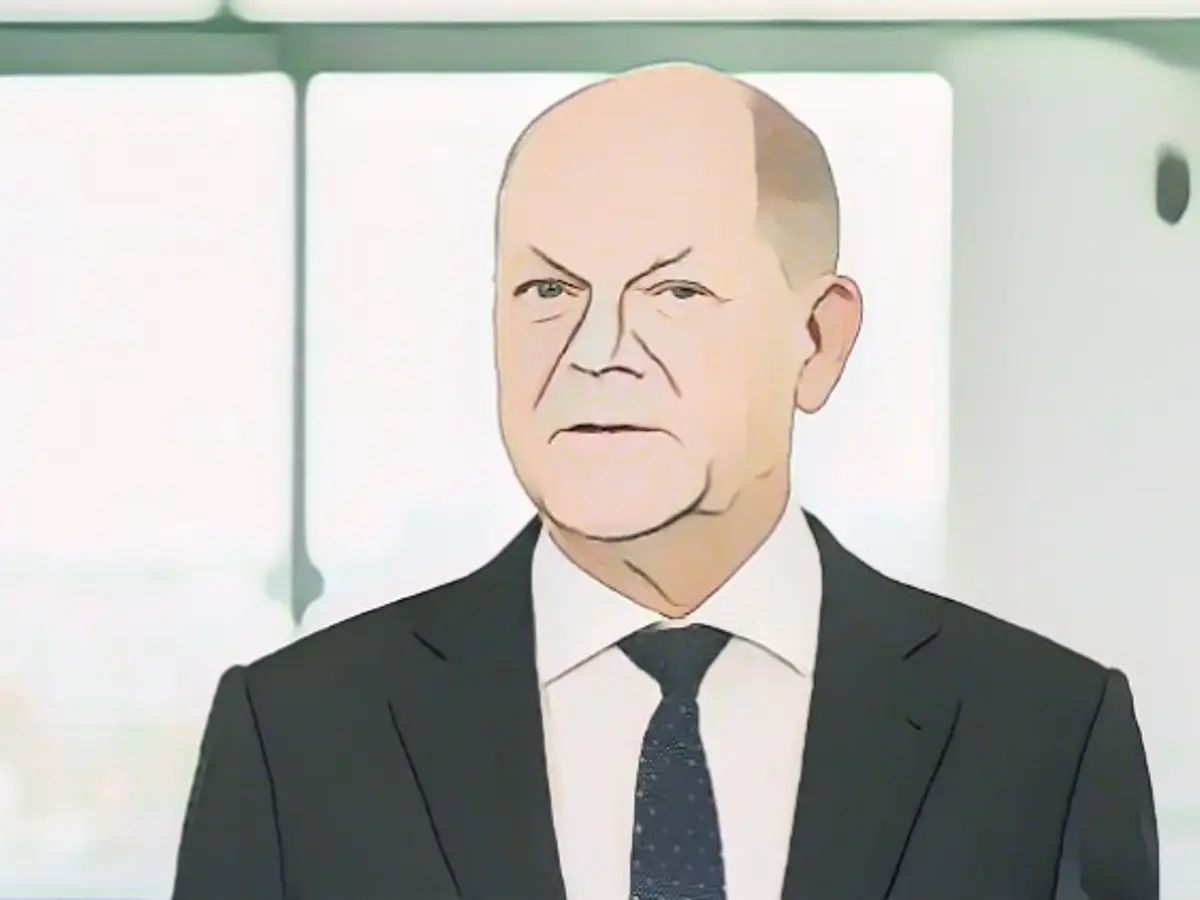Confidence in the Chancellor Wanes
Less than one-quarter of Germans trust their Chancellor now, compared to a year ago, according to recent polls. This downtrend mirrors a broader trend in public opinion.
Recent surveys, conducted by the opinion research institute Forsa on behalf of RTL Germany, reveal that only 19% of Germans still have a high level of faith in the chancellor's office. This marks a dramatic decline from 75% at the end of 2020, the first year of the COVID-19 crisis.
In East Germany, the drop is even more pronounced. Only 12% of East Germans currently have high trust in the country's leader. The opposition parties, CDU, CSU, and particularly the AfD, see less trust in the chancellor. Similarly, supporters of the co-governing FDP share this sentiment.
Trust in the federal government has also plummeted, falling from 63% to 21% at the end of 2023 - a steep fall-off of 42 percentage points in just three years. Trust in the Bundestag (the legislative branch) has also suffered, dropping from 54% to 32% since the end of 2020.
The chancellor's trust levels have also dwindled among supporters of the CDU, CSU, and the AfD. Meanwhile, the Pope's trust levels have also gone down, but with a slight recovery in popularity, increasing from 16% to 17% at the end of 2023.
Insights:
Several factors contribute to the decline in trust in Germany's leadership. Economic challenges include a lack of significant growth in five years, a struggling business model discouraged by Moscow's natural gas supply cut after the Ukraine invasion, and a shortage of skilled workers. Red tape in approval procedures and excessive paperwork also weigh on industries.
Migration debates dominate the political landscape, fueled by rhetoric around economic scarcity and social integration concerns. Despite these challenges, the country needs immigration to fuel future growth.
Political instability accompanies the collapse of the three-party coalition, leading to intragovernmental strife and voter discontent. The governance performance of the country has also seen a decline due to complacency and structural issues.
